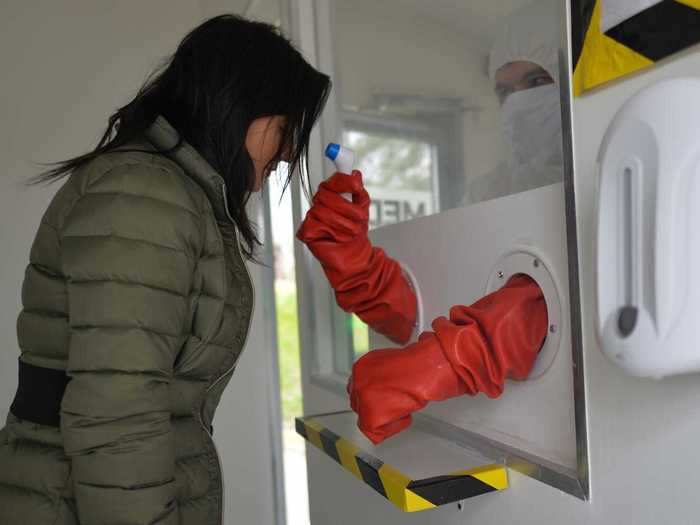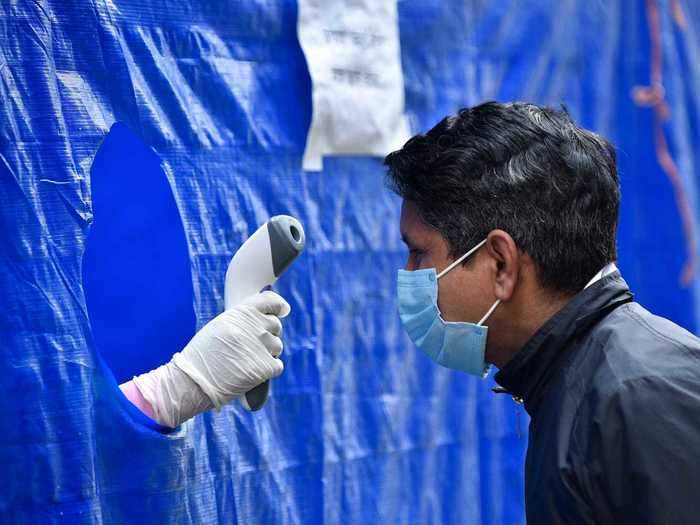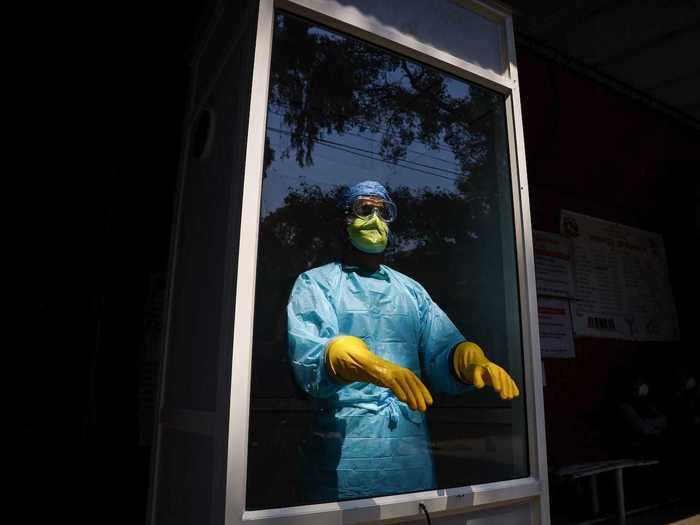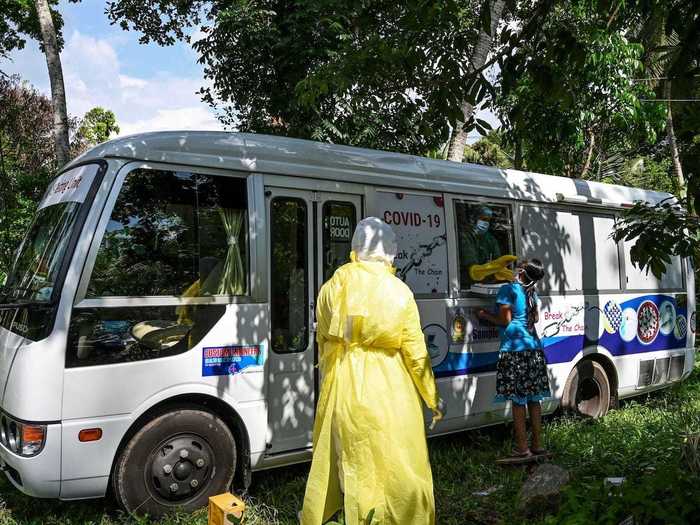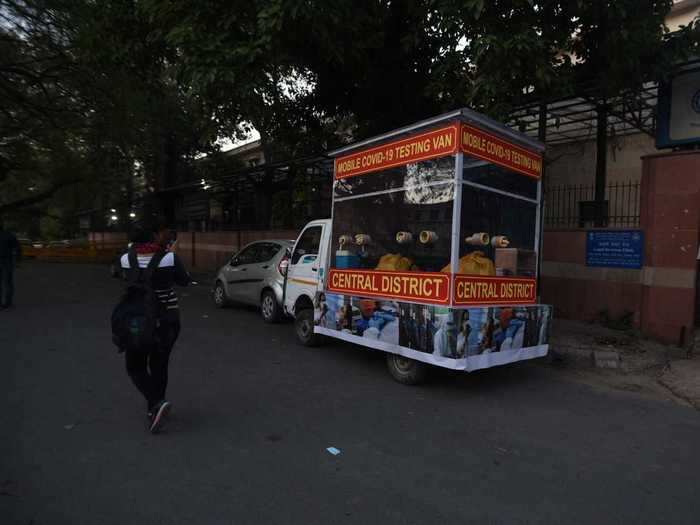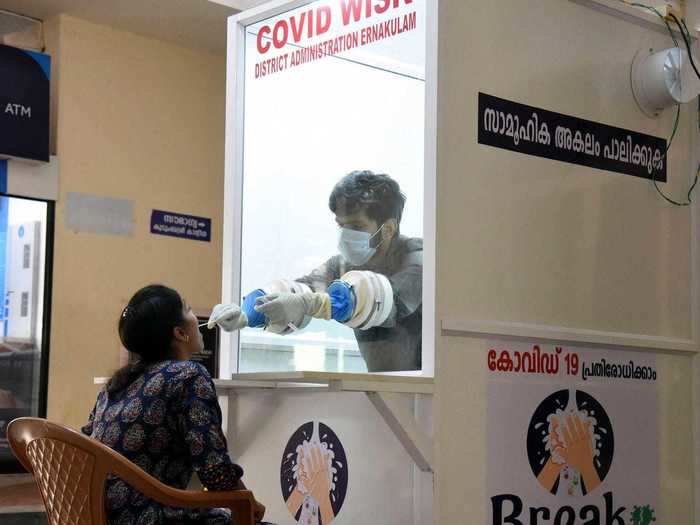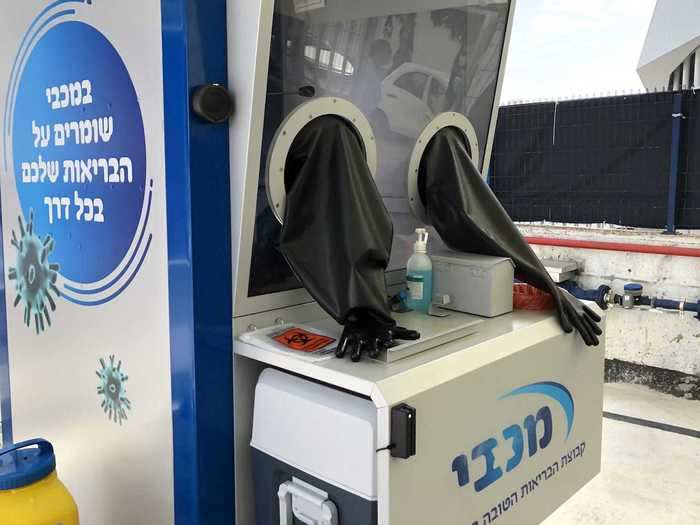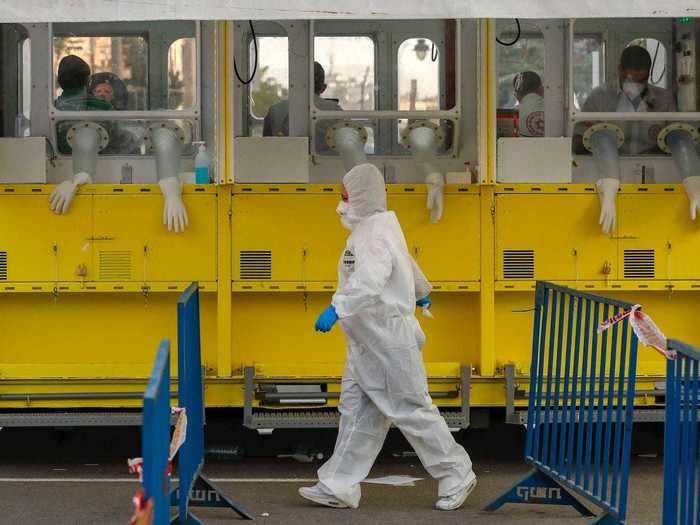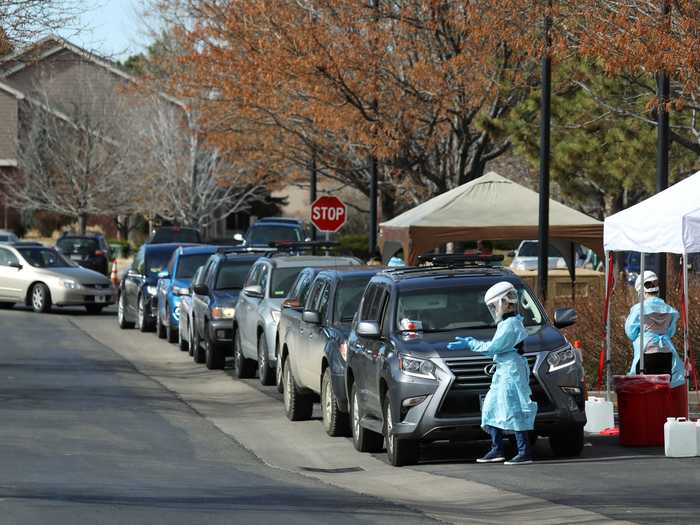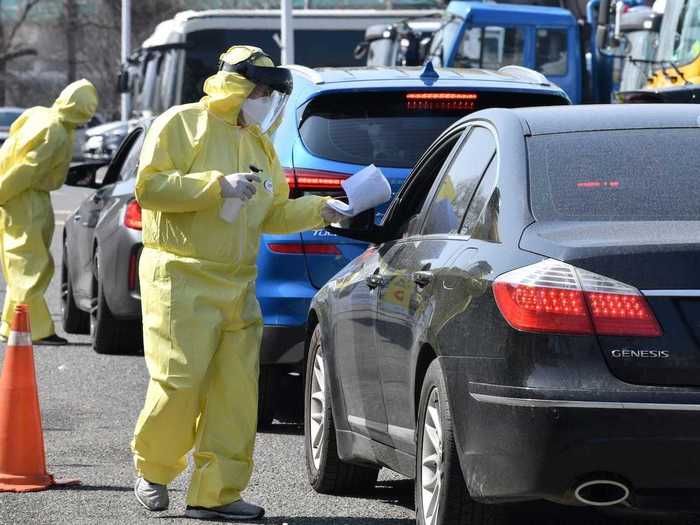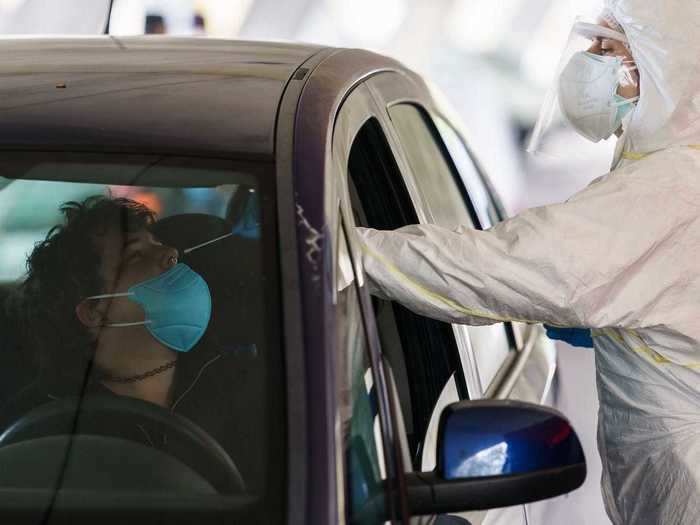A paramedic of Israel's Magen David Adom national emergency medical service walks next to a COVID-19 mobile testing station in the Geula neighbourhood in Jerusalem, on April 20, 2020.Ahmad Gharabli/AFP via Getty Images
- Countries around the world are coming up with new ways to test people for the coronavirus.
- South Korea and some US states have adopted drive-thru testing centers, which allow patients to be swabbed while sitting in their cars.
- Meanwhile in places like Israel and India, health officials are using mobile booths that have rubber gloves attached to them in an effort to prevent human contact.
- Photos show how different countries around the world are testing people for the coronavirus.
- Visit Business Insider's homepage for more stories.
If there's one thing countries have learned from the coronavirus pandemic, it's this: testing is key.
This is why countries have been adopting different methods to test as many people as possible, and as safely and efficiently as possible.
While places like South Korea, Spain, and several US states, have introduced drive-thru clinics — in which people are swabbed in their cars — other areas are using more innovative ways, from roadside centers with rubber gloves attached to mobile testing buses.
Take a look:
Read the original article on
Business Insider
Some Polish cities, meanwhile, is using the kiosk/rubber glove design to check the temperatures of people entering hospitals or essential workplaces.
A young woman gets her temperature taken by a man inside a Medicovid mobile control unit in Krakow, Poland on April 14, 2020.
Artur Widak/NurPhoto via Getty Images
Meanwhile, other hospitals in the country are using only a plastic sheet as a barrier, with a hole cut in the middle for the medic's hand to reach through.
A Nepalese man has his body temperature tested as he passes by a hospital in Kathmandu on April 12, 2020.
Narayan Maharjan/NurPhoto via Getty Images
Nepal has also set up coronavirus test kiosks with glass panes in front of some hospitals across the country.
A Nepalese Army medic waits in a testing booth at an army barracks in Kathmandu, Nepal, on April 17, 2020.
Narayan Maharjan/NurPhoto via Getty Images
At the time of writing, Nepal only has 32 confirmed coronavirus cases and zero deaths, but health experts argue that the number is low because the country lacks resources for wider testing, South China Morning Post reported.
Health workers in Sri Lanka have also transformed buses into mobile clinics, driving from town to town to test people.
A health worker uses a swab to collect a sample coronavirus test from a woman at a mobile testing unit in Colombo on April 18, 2020.
Lakruwan Wanniarachichi/ AFP via Getty Image
Sri Lanka, which as of April 21 has just over 300 confirmed cases, has been ramping up its testing efforts.
Earlier this month, the country received a donation of 20,000 testing kits from Alibaba founder Jack Ma, according to The Hindu.
Dr. Deepa Gamage, consultant epidemiologist at the Ministry of Health told the paper: "We have been very carefully implementing the strategy best suited for our country and our context, with existing limited resources."
Some Indian cities are even making the service mobile, with small testing vans popping up on the streets of New Delhi.
People look at a mobile COVID-19 testing van in Daryaganj, New Delhi on April 19, 2020.
Sonu Mehta/Hindustan Times via Getty Images
The vans, which drive through coronavirus hotspots in the Indian capital, have two-way wireless loudspeakers through which medics and patients can communicate, according to The Hindu.
A similar design is being used in Kerala, India, where medics are testing people with two rubber gloves attached to a window of an airtight kiosk that looks like a phone booth.
A medic collects samples from a woman at a new walk-in coronavirus testing kiosk at Ernakulam Medical College in Kerala, India on April 11, 2020.
Xinhua/Stringer via Getty Images
The booths, which are being used across the country, are designed so that medical staff can work in a sealed and sterile environment while swabbing a person.
A COVID-19 coronavirus test kiosk at the Maccabi Medical Clinic in Tel Aviv, Israel on April 20, 2020:
Andrei Shirokov\TASS via Getty Images
Another benefit to the design is that the person testing does not have to wear full protective equipment, which might not be readily available in some countries, the Daily Mail reported.
It's not clear, however, if and how the gloves are sterilized before treating a new person.
At the time of writing, Israel has seen more than 13,500 confirmed coronavirus cases, according to Worldometers.
But new kinds of services are popping up. Israel recently introduced roadside testing booths that with a separating glass and rubber gloves attached to ensure zero contact between medics and testers.
A paramedic of Israel's Magen David Adom national emergency medical service walks by a COVID-19 mobile testing station in Jerusalem's Geula neighbourhood on April 20, 2020.
Ahmad Gharabli/AFP via Getty Images
The booths, manufactured by local healthcare companies alongside military partners, only take less than a week to produce and are relatively cheap, according to the Daily Mail..
... and one in Denver, Colorado.
A drive-thru testing station run by the state health department in Denver on March 11, 2020.
Jim Urquhart/Reuters
Drive-thru testing clinics have so far been adopted by many different countries, including the US, Spain, Australia, Germany, and South Korea.
But the system has been marked with some inconsistencies.
This month, New Yorkers criticized drive-thru centers because 45% of the city's households don't own cars and therefore don't have access to the service.
There have also been complaints of long waiting times, and a shortage of supplies and medical staff in other US states, according to the Associated Press.
... one in Goyang, South Korea...
Medical workers guide drivers at a drive-thru virus test facility in Goyang on February 29, 2020.
Getty Images
One of the more popular methods to conduct mass coronavirus tests is setting up drive-thru testing clinics, where people can be swabbed directly from their cars. Here's one in Burgos, Spain...
A healthcare worker takes samples from a driver at a drive-thru testing point at the University Hospital in Burgos, Spain on April 18, 2020.
Cesar Manso/AFP

